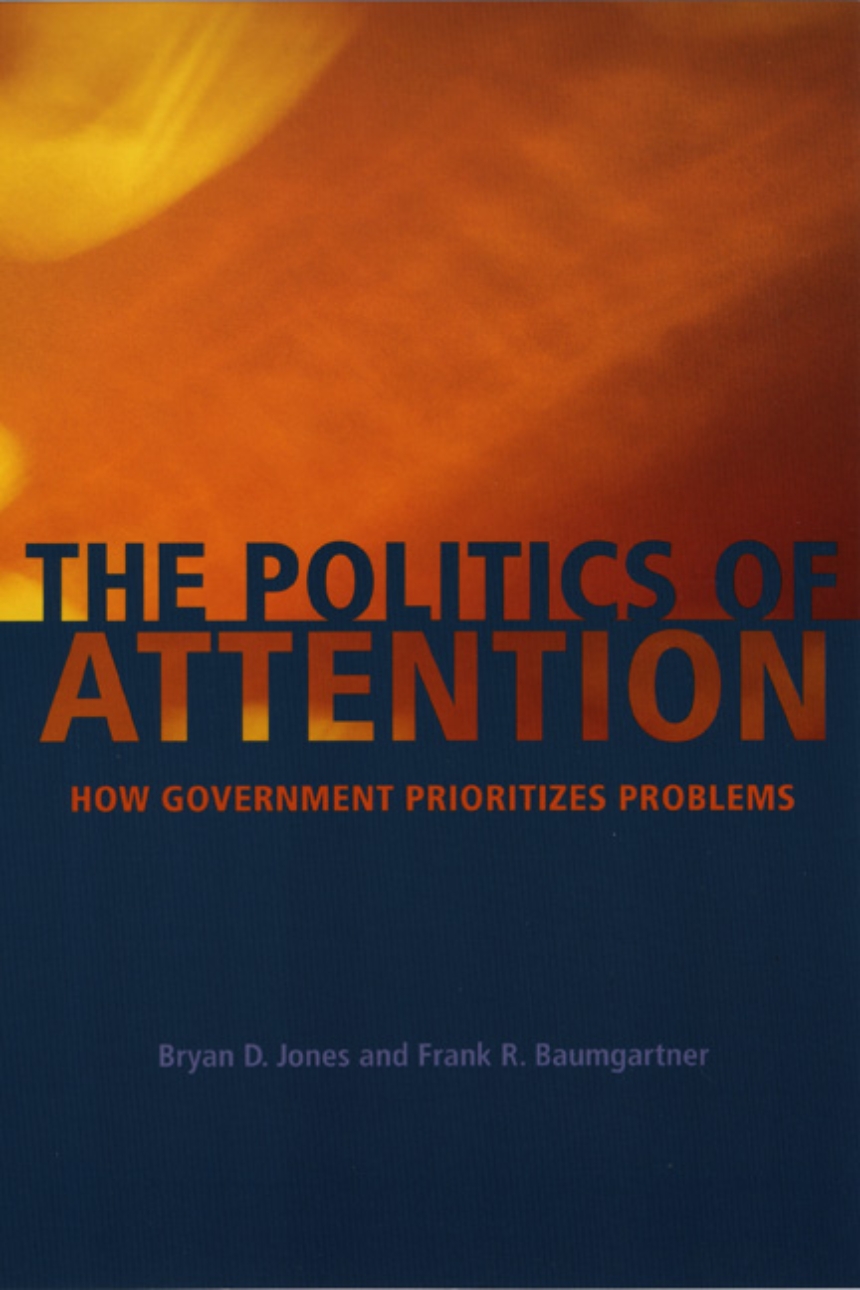The Politics of Attention
How Government Prioritizes Problems
On any given day, policymakers are required to address a multitude of problems and make decisions about a variety of issues, from the economy and education to health care and defense. This has been true for years, but until now no studies have been conducted on how politicians manage the flood of information from a wide range of sources. How do they interpret and respond to such inundation? Which issues do they pay attention to and why? Bryan D. Jones and Frank R. Baumgartner answer these questions on decision-making processes and prioritization in The Politics of Attention.
Analyzing fifty years of data, Jones and Baumgartner’s book is the first study of American politics based on a new information-processing perspective. The authors bring together the allocation of attention and the operation of governing institutions into a single model that traces public policies, public and media attention to them, and governmental decisions across multiple institutions.
The Politics of Attention offers a groundbreaking approach to American politics based on the responses of policymakers to the flow of information. It asks how the system solves, or fails to solve, problems rather than looking to how individual preferences are realized through political action.
Analyzing fifty years of data, Jones and Baumgartner’s book is the first study of American politics based on a new information-processing perspective. The authors bring together the allocation of attention and the operation of governing institutions into a single model that traces public policies, public and media attention to them, and governmental decisions across multiple institutions.
The Politics of Attention offers a groundbreaking approach to American politics based on the responses of policymakers to the flow of information. It asks how the system solves, or fails to solve, problems rather than looking to how individual preferences are realized through political action.
304 pages | 62 line drawings, 17 tables | 6 x 9 | © 2005
Political Science: American Government and Politics, Public Policy
Reviews
Table of Contents
Preface
1. How Government Processes Information and Prioritizes Problems
Part I - Information and Choice
2. A Behavioral Model of Policy Choice
3. The Intrusion of New Information
Part II - Information Processing and Policy Punctuations
4. "Understandable Complexity" in Policy Choice
5. Incrementalism, Disproportionate Information-Processing, and Outcomes
6. Cognitive Architectures, Institutional Costs, and Fat-Tailed Distributions
7. Policy Punctuations in American Political Institutions
Part III - Signal Detection and the Inefficiencies of Agenda Setting
8. Agenda Setting and Objective Conditions
9. The Inefficiencies of Attention Allocation
10. Representation and Attention
11. Conclusions
Appendixes
References
Index
1. How Government Processes Information and Prioritizes Problems
Part I - Information and Choice
2. A Behavioral Model of Policy Choice
3. The Intrusion of New Information
Part II - Information Processing and Policy Punctuations
4. "Understandable Complexity" in Policy Choice
5. Incrementalism, Disproportionate Information-Processing, and Outcomes
6. Cognitive Architectures, Institutional Costs, and Fat-Tailed Distributions
7. Policy Punctuations in American Political Institutions
Part III - Signal Detection and the Inefficiencies of Agenda Setting
8. Agenda Setting and Objective Conditions
9. The Inefficiencies of Attention Allocation
10. Representation and Attention
11. Conclusions
Appendixes
References
Index
